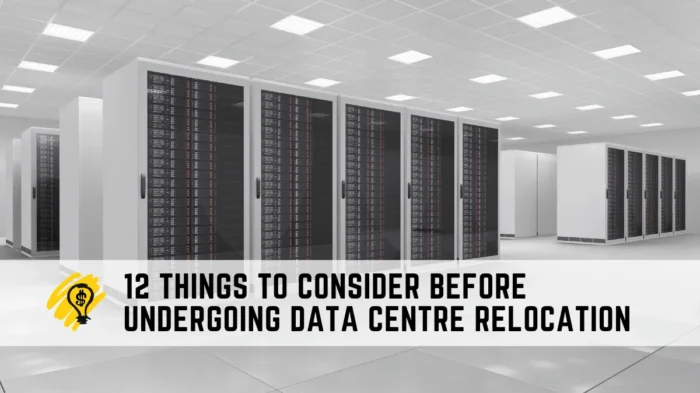Data center relocation is a significant undertaking for businesses of all sizes. Moving from one data center to another can be complicated and lengthy, but it can also benefit your business.
By relocating to a new data center, businesses can have access to improved technologies and services that can help them better manage their data and capitalize on new business opportunities.
Before jumping into a data center relocation project, there are several important factors that businesses need to consider. This article will discuss some critical business considerations before undertaking a data center relocation.
1. You’ll Need to Consider the Location
Location is a key factor when undergoing data center relocation for your business. If your new data center is too far away, it can create latency issues with your users. Additionally, the new location’s laws and regulations may differ from those in your current one.
For example, some states have laws governing the data collection and storage of personal information. Understanding and adhering to these laws is important for your business to remain compliant. Additionally, the geographical location of your data center can also affect its security and availability.
2. Reputation of the Data Center Provider
The reputation of the data center provider is essential when undergoing data center relocation. Research and reviews must be researched to ensure that the data center provider is reliable and trustworthy. You’ll want to know their reputation in terms of customer service, uptime, and data security.
In addition, you’ll want to check their compliance record with industry standards and regulations. A good reputation is essential for ensuring a successful data center relocation. Data Centre Relocation with Macquarie Data Centres is one of the best options you can make if you want to ensure a successful and seamless process.
3. Create a Relocation Plan
Creating a detailed relocation plan is vital for any data center relocation. This plan should include a timeline for the move and detailed instructions and considerations for each process step. It’s also important to factor in contingencies should any unexpected issues arise.
Additionally, your plan should include the resources and personnel needed to ensure a successful move. Finally, document each process step and keep track of any issues. This will help you stay organized throughout the relocation and ensure a smooth transition.
4. Cost
Cost is also an important factor to consider when undergoing data center relocation. Depending on the scope of your move, costs can range from a few hundred to many thousands of dollars. Moving to a new data center involves purchasing or renting equipment and services, such as servers, storage, cables, racks, and power.
Furthermore, you’ll need to factor in the costs associated with labor, testing, and training. Evaluating these costs before beginning the relocation process is essential to ensure you stay within budget.
5. Reliability Should Be a Factor
Reliability is essential when undergoing data center relocation. The new data center must be reliable and secure to protect your business from unplanned outages and downtime. It’s essential to research the new data center’s infrastructure, policies, and processes to ensure that it meets your business needs.
Moreover, you’ll want to determine the data center’s uptime, availability guarantees, and power and cooling capabilities. This will help ensure your business is always up and running.
6. Backup and Disaster Recovery Strategies
A reliable backup and disaster recovery strategy is key when relocating a data center. This strategy should include provisions for the backup and recovery of data, systems, and applications. It’s essential to determine the data center’s ability to recover from disasters such as power outages, hardware failures, and cyber-attacks.
Additionally, you’ll need to develop a plan for restoring data during a disaster. An effective backup and recovery strategy will ensure that your business is always prepared to handle unexpected issues.
7. Testing
Testing is essential for any data center relocation. This includes testing the new data center’s equipment, infrastructure, and security measures. Additionally, you’ll need to test your applications and systems to ensure they are running properly. This will help you identify and address any issues before the actual relocation.
Furthermore, it’s essential to test your backup and disaster recovery strategies to ensure they are working properly. Testing is an important part of any data center relocation, as it helps identify and address potential issues before the move is complete.
8. Evaluate Your Current Data Center
Before undergoing data center relocation, taking a step back and assessing your current data center is essential. Evaluating the existing setup can help you identify any potential issues that need to be addressed before the move. This includes reviewing the existing infrastructure and equipment, as well as its configuration and performance.
Additionally, you’ll need to consider factors such as the power and cooling systems, security measures, maintenance schedules, and backup strategies. This will help you determine the steps you need to take to ensure a successful move.
9. Ongoing Maintenance and Support
Ongoing maintenance and support are critical when undergoing data center relocation. This includes 24/7 monitoring and technical assistance. Additionally, you’ll need to ensure that the data center provider is prepared to address any issues.
You should also consider maintenance contracts and third-party support services to ensure the data center is always up and running. Having reliable maintenance and support is essential for a successful relocation.
10. A Proper Security System
A proper security system is essential when undergoing data center relocation. This includes measures such as firewalls, antivirus protection, and encryption. Additionally, you’ll want to ensure that the data center provider has protocols for detecting and responding to cybersecurity threats. A strong security system is key for keeping your data safe and secure in the new data center.
11. Cost-Benefit Analysis
A cost-benefit analysis is essential when undergoing data center relocation. This involves analyzing the costs of relocating compared to the benefits it will bring. This includes factors such as cost savings, uptime, and increased efficiency.
Additionally, you’ll need to consider the long-term benefits of the relocation, such as scalability and customer satisfaction. A thorough cost-benefit analysis will help ensure that the relocation is a wise decision for your business.
12. Consider the Latency Limit
Latency limit is an essential factor when undergoing data center relocation. Latency is the time it takes for data to travel between two points. The data center provider should provide clear guidelines on the latency limit they can offer you.
You’ll want to ensure that your applications and systems meet the latency limit. A low latency limit will ensure that your data is transferred quickly and efficiently, avoiding any interruption in service.
Bottom Line
Data center relocation is a complex process, with many factors to consider. A successful move requires careful planning and research, including evaluating the reputation of the data center provider, ensuring reliable maintenance and support, having a proper security system in place, conducting a cost-benefit analysis, and understanding the latency limit. With the right approach and preparation, you can ensure a smooth transition and successful data center relocation for your business.



